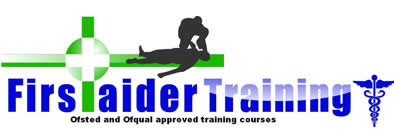It was world Diabetes day this week so we thought that it would be a timely reminder about the condition from a first aid perspective.
Diabetes affects 3,9 million people in the UK alone. Diabetes is relatively common now and irrespective of the type of diabetes it is all about how much sugar is in the casualty’s blood.
Too much sugar in the blood is a bad thing , as is too little, we need just the right amount.
The World Diabetes Day Campaign this year planned to raise the awareness of the impact that diabetes has on the family and to promote the role of the family in the management, care, prevention and education of the condition.
There are three main areas to focus upon;
Diagnosis
Prevention
Management
Did you Know?
One in every two people with diabetes is undiagnosed. Early diagnosis and treatment is key to helping prevent or delay life-threatening complications.
If type 1 diabetes is not detected early, it can lead to serious disabilities or even death. Knowing the signs and symptoms of the condition can help protect yourself and your family.
Would you recognise the signs of a diabetic high or low?
Diabetes results in an imbalance of the levels of sugar in the blood. Commonly we see hypoglycaemia (low blood sugar levels) and occasionally we see hyperglycaemia (high blood sugar levels). Non-diabetic can also experience low blood sugar levels in certain circumstances.
| HYPERglycaemia | HYPOglycaemia | |
| Amount of insulin used | Not enough | Too Much |
| Deterioration | Gradual | Very quick |
| Hunger | Absent | Present |
| Vomiting | Common | Uncommon |
| Thirst | Present | Absent |
| Breath odour | Fruity/sweet | Normal |
| Pulse | Rapid and weak | Rapid |
| Breathing | Rapid | Normal |
| Skin | Dry and warm | Pale, cold and sweaty |
| Seizures | Uncommon | Common |
| Consciousness | Drowsy | Rapid loss |
How To Treat Diabetic Conditions:
Hyperglycaemia
◦Call for an ambulance
◦If unconscious – recovery position
◦Monitor breathing and response levels
Hypoglycaemia
◦Sit the casualty down
◦Sugary drink
◦Sweet food
◦Monitor and reassure
◦Call ambulance if ineffective
◦If unconscious – recovery position and monitor
If you would like to know more about our first aid courses in the Thirsk, Northallerton or Ripon areas please get in touch.
